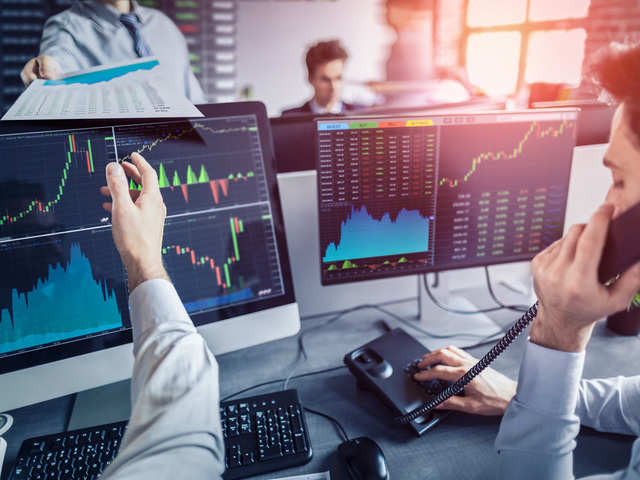The weeklong plummet of the stock market continued on Friday, as indicated by at least a 1% fall for the leading indices. Institutional investors who no longer believe in the global economy continue to exit.
The Fed’s action this week whereby it further raised interest rates to curb runaway inflation and the clear signal that it will continue to do so for as long as is necessary has put the markets on high alert.
Wondering how the interest rate and stock markets relate? The causal relationship between the two elements means a lot to the market. This article will briefly explore this link and suggest the steps for the investor to take for the rest of the year.
Table of Contents
Interest Rate Impact on Stock Market
The effect of the Fed interest rate on the stock market is not direct, but the trickle-down effects can reach the market. When the rates increase, access to loans becomes more expensive. If these changes prompt companies and people to freeze spending, company stocks could dwindle in value.
This seems to have been the case since the latest hike. Globally, the stocks fell remarkably on Friday. The S&P 500 neared its lowest point of this year with a 1.7% fall, and the Dow Jones Industrial Average was down by 1.6%, which was the lowest for almost two years. Nasdaq was not spared either, with its 1.8% slump highlighting the market on Friday.
There were stock price falls in Europe too, with a reported reduction in business activity. In the wake of London sending signals of tax cuts and prompting higher interest rates, there was additional pressure on the stock prices.
Fear of Real Recession
Fed rate hike is the conventional method of arresting increased inflation, but this is no longer a simple decision for governments. Controlling inflation may indeed trigger a more serious problem – a global recession due to reduced economic activities.
Market observers and investors are aware of the risks. Even the World Bank has acknowledged that the world may be edging towards a second global recession. This warning aside, some investors are already taking the brunt of the situation and implementing measures such as suspending hiring.
A case in point is FedEx (FDX) deciding to pull its company guidance for the year due to macroeconomic shortfalls. As announced by company CEO Raj Subramaniam, closing down 90 offices and minimizing flights are some of the measures being taken.
Is 2022 Worse Than 2008?
There are already claims that 2008 wasn’t as bad as 2022 is for investors. Indeed, few believed that this year could deteriorate to the level it is today. The Consumer Price Index (CPI) for 2008 was -0.02%, yet in 2022, we are looking at a CPI of +8.3%. This means there is no contest as to which year has higher inflation. That experts believe this situation will not ease until at least in 2024 is more worrying. Consumers will continue to pay higher for rent and basic commodities, and investors will have to endure the higher interest rates and other forms of tightening.
The stock market in 2022 may still be healthier today than it was in 2008, but the bond market is doing comparatively badly. The Morningstar U.S. Core Bond Index for 2022 is at -12% as compared to the -4% in 2008.
How To Face The Rest Of The Year
Experts opine that the rest of 2022 is most likely to be bumpy for most people, but as we have learned from the past, these things are part of the journey. Volatility is normal in the stock market.

It is advisable to remove emotions from the equation as one deals with investments, even at this time. If you can diversify your portfolio, this is the time to do so. Most importantly, understand your investment goals and stick to them.
Conclusion
Stock markets are naturally volatile. As was in the past during the global recession, macroeconomic and other factors are the triggers of the looming global recession. The fear is in the air and markets are the risk of crashing.
Whatever you decide to do in the wake of this challenge, think twice before making any move. You want to look at all angles because behavioral biases exist. This is also the time to diversify and focus on a goal.












:max_bytes(150000):strip_icc()/GettyImages-522272311-5949bdc15f9b58d58a035319.jpg)
